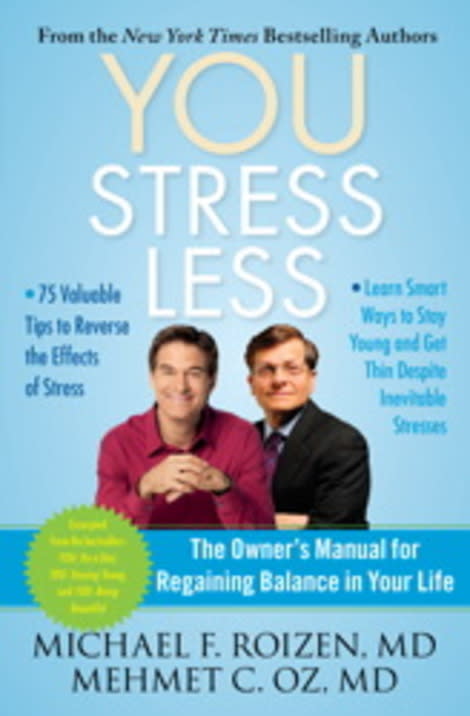Dr. Oz's Holiday Stress Management Checklist

Eliminating stress doesn't necessarily mean pouring a nice hot bubble bath. Try these holiday stress-busting strategies to avoid letting your worries rule your mind-and your life. From YOU Stress Less: The Owner's Manual for Regaining Balance in Your Life by Dr. Michael F. Roizen, MD, and Mehmet C. Oz, MD.
Stress Strategies
Identify the source of your stress. Though some sources are easy to identify, it may be difficult to really determine what's bothering you. Lashing out at your kids may be a reaction not to what your kids did but to an extra assignment piled on at work. The first step to managing your stress is pinpointing the culprit.
Focus on the moment. Though it can be hard, you'll have better stress management by being "mindful"-that is, really paying attention to the present and trying to get out of the gears of the past and the future (both of which are major sources of stress). That means especially noticing the things that you ignore, like your breath, body sensations, and emotions. One way to practice living in the moment: the body scan.
How do you do it? Focus on every part of your body, which will help you to relax:
•Lie down.
•Close your eyes and notice your posture.
•Think about the natural flow of your breath, focusing on air filling and leaving the lungs.
•Notice your toes-any tension, tingling, or temperature change?
•Move to thinking about your feet, heels, and ankles, all the way up through the knees, thighs, and pelvis.
•Continue with each body part, going through both the front and back of your body as you work your way up, and finishing with the throat, jaw, tongue, face, and brow.
Go through your health checklist: Stress is much more manageable when the other aspects of your life-from your general health to your sleep patterns to your eating habits-are in good order. When you don't get enough sleep, for instance, your body produces more stress hormones, making you more vulnerable to the damaging effects of stress. Evaluate what areas in your life need your attention, and work on fixes.
Do the opposite: Every emotion has an "urge to act" that goes with it. When we feel afraid or anxious, we avoid things; when we are depressed or sad, we withdraw (stay in bed). When we are angry, we want to lash out or yell. Unfortunately, each of these mood-inspired behaviors actually increases an emotion, not decreases it. However, if you can act the opposite way, you can decrease the emotion. Angry at someone? Don't lash out, but, rather, be empathetic. Depressed? Instead of shutting yourself in, go out. Rather than letting your emotions determine what you do, take control and choose how you feel.
Focus on your muscles: By tensing and relaxing your muscles, you can help relieve some of your stored physical stress. While sitting or lying down, tense the muscles of your feet as much as you can and then release the tension. Tense and relax different muscle groups of your body one at a time. Focus on your legs, stomach, back, neck, arms, face, and head. When done, relax for a few minutes.
Related Links:
Buy YOU: Stress Less The Owner's Manual to Regaining Balance in Your Life
Learn Why Holiday Stress Can Make you Fat
3 Exercises for Reducing Stress
Like Tips on Healthy Living on Facebook
Follow Tips on Healthy Living on Twitter

